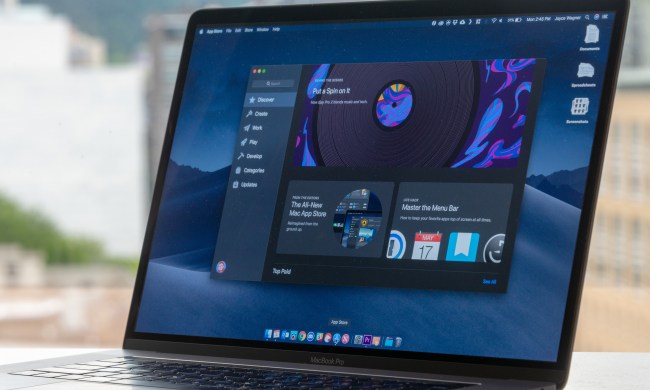
MacOS is mythically known for being more immune viruses and other problems when compared to Windows, but that doesn’t mean there isn’t room to make the operating system safer. In the latest development, Apple is using an app notarization feature in macOS Mojave to protect users from downloading malicious apps, originally noted by Mac Rumors.
The new feature builds on the existing GateKeeper functionality and adds in “streamlined dialog” for the user to see that a downloaded app is not a form of malware. Under the hood, the process involves the use of XCode, and scanning the network ID and performing security checks on the code.
Apple provides a technical step-by-step guide on the process over on its developer website, noting it “give users even more confidence in your software by submitting it to Apple to be notarized.” The process only affects apps which are opened through an installer package, or disk image and will not impact other games or programs downloaded through the store.
GateKeeper was first introduced in 2012 and is on by default on all Macs. It sets security settings to high levels, only allowing apps from the App Store or identified developers to be installed. Users can always temporarily override the security settings and open or install apps as they please.
“The safest place to get apps for your Mac is the App Store. Apple reviews each app in the App Store before it’s accepted and signs it to ensure that it hasn’t been tampered with or altered. If there is ever a problem with an app, Apple can quickly remove it from the store,” explains Apple.
The feature has been somewhat controversial in the past. In two separate instances, GateKeeper was proven to be vulnerable. Once in September 2015, a researcher bypassed the defenses by using a trusted binary file. In January 2016, another researcher leveraged a man-in-the-middle attack on the security feature. Apple quickly patched the security flaws in both instances.
Apple recently pushed out MacOS Mojave on September 24. Along with the usual security patches, the free upgrade introduces a Dark Mode, improved App Store, group chat in FaceTime, and stacks for helping clean up the desktop. We found these to be excellent features, noting that the upgrade revamps the entire MacOS user experience.


